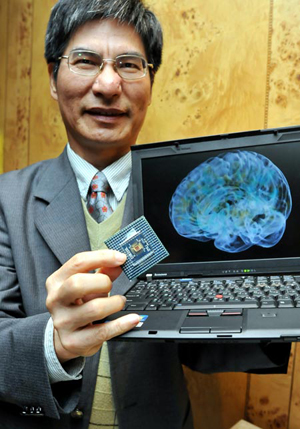A new processor chip developed in Taiwan brings the computer industry a big step closer to the holy grail of machines that can think like human beings.
The smart recognition chip developed by Chen Liang-gee of National Taiwan University incorporates neuroscience — possessing the ability to recognize faces and to learn.
Computers have strong calculating abilities, but are fairly weak when it comes to recognition, Chen noted. The team took five years to develop a “silicon brain” that would give computers key recording functions similar to the human brain.
Chen’s team was dubbed the “neocortical computing project”. It sought to replicate some of the functions of the neocortex, the largest, most evolved section of the human brain which governs sensory perception, motor commands, spatial reasoning, conscious thought and language. The chip, which took five years to develop, drew on researchers in psychology, ophthalmology and neuroscience.
The team beat rivals in the United States and Europe to unveil the technology first, Chen said.
Chen thinks that in five to 10 years, his chip may be embedded into eyeglasses, watches and other devices to help people identify each other by name and occupation. It would be like having a full-time personal secretary, Chen said.
The project is among nine Taiwan papers selected for presentation at next February’s IEEE International Solid-State Circuits Conference in San Francisco.


